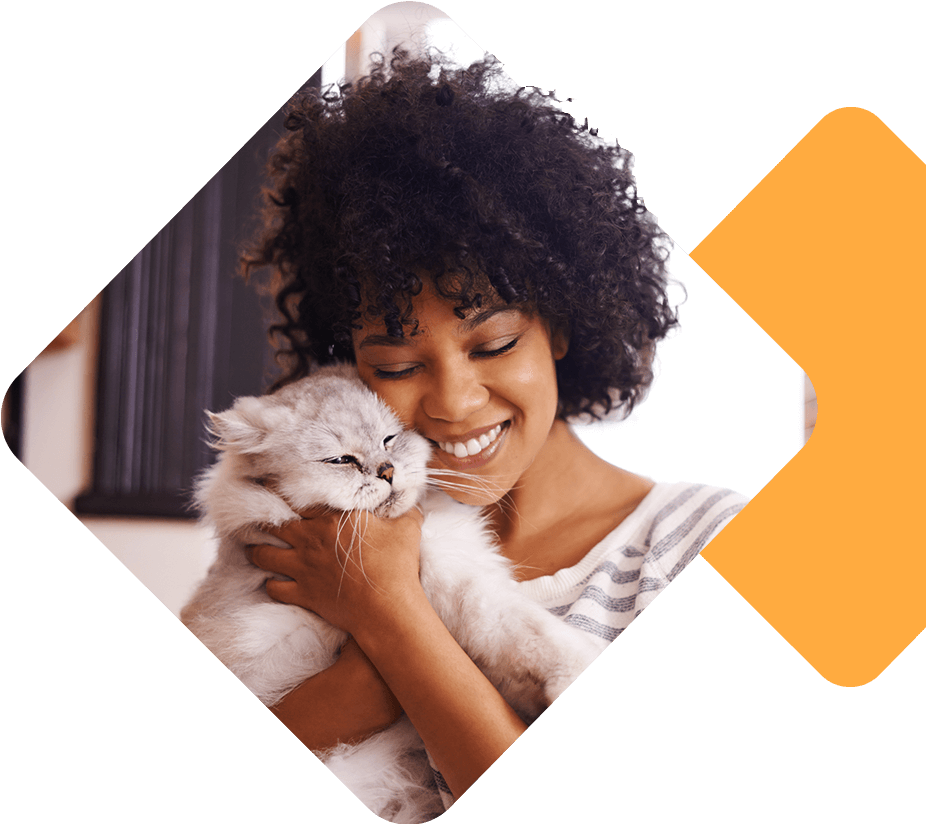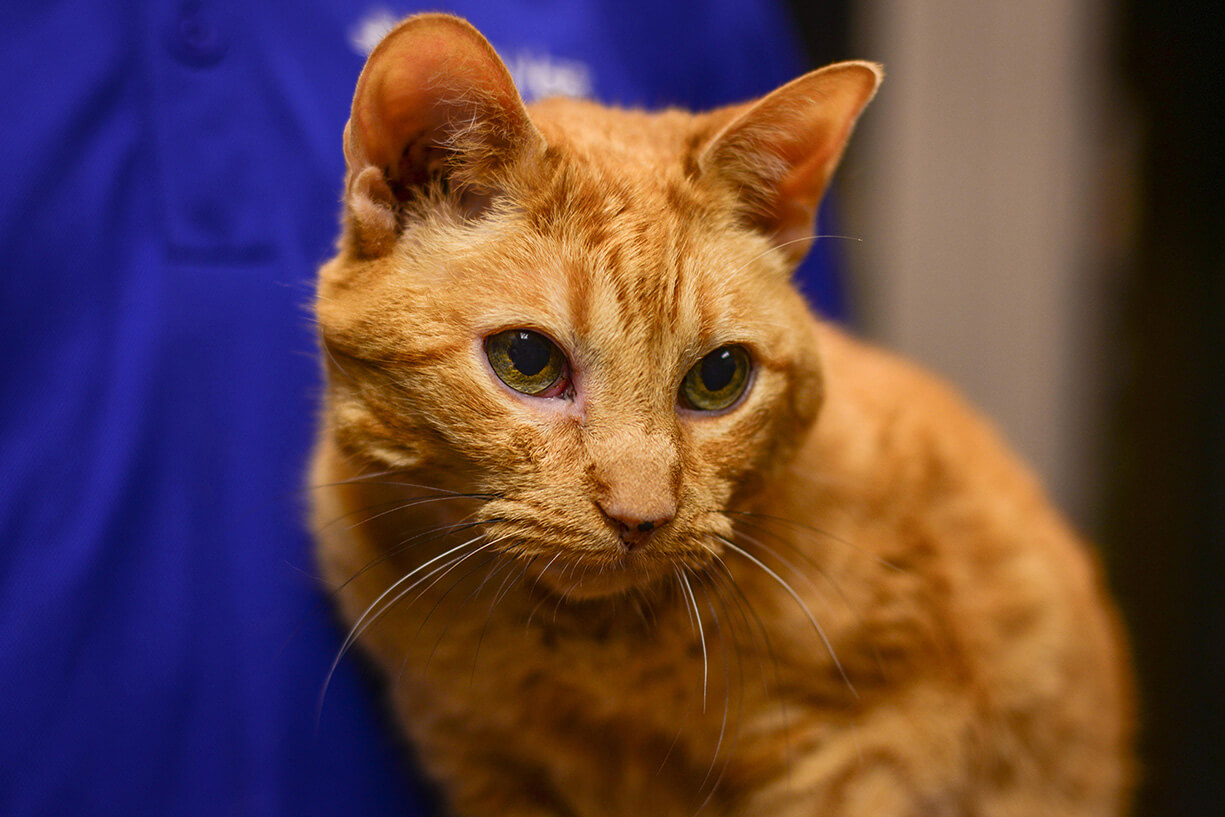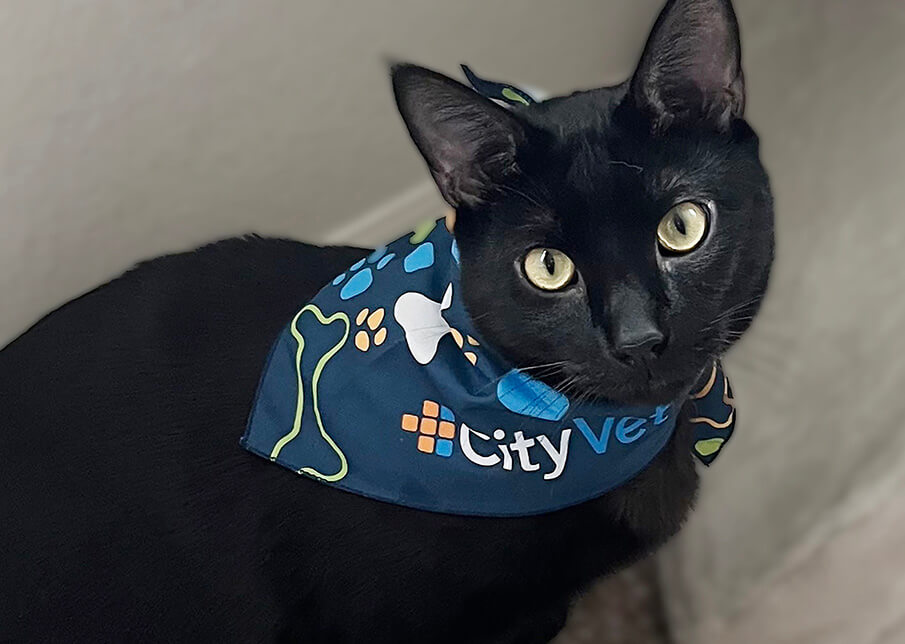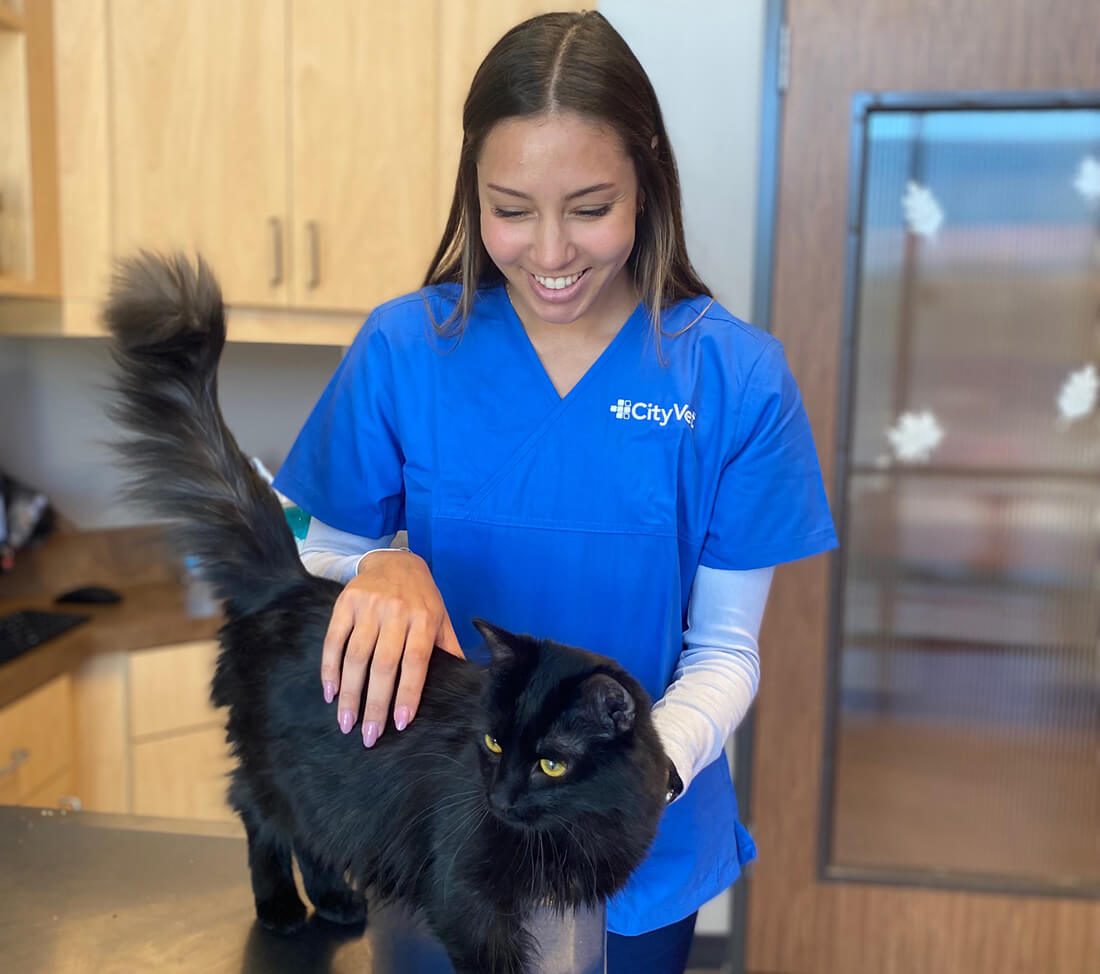Purr-worthy pet care
Wellness Care for Cats
We care that your cat lives a long and happy life just like you do. That’s why we’re here for every phase of your feline friend’s life from annual exams to major surgeries.

We care that your cat lives a long and happy life just like you do. That’s why we’re here for every phase of your feline friend’s life from annual exams to major surgeries.


Regular physical exams by a veterinarian are an essential part of a proactive and preventive approach to help keep your cat healthy and happy. Wellness checkups play a key role in the early detection of serious illnesses, especially since our pets can’t tell us when there is something wrong. Because cats age more rapidly than people, therefore changes in health status may occur much quicker, general physical exams are recommended every 6 months. These 6 month exams are especially important for pets older than 5 years of age.
Core vaccines are those immunizations recommended for all cats regardless of life stage or lifestyle due to factors such as the likelihood of infection, the threat posed to the pet’s health, or the risk of transmission to humans (zoonotic potential).
Rabies (RV) – Annually using a 1-year, non-adjuvant vaccine, which has been proven to be safer than 3-year adjuvant vaccines in cats. Rabies vaccination is required by law.
Feline Viral Rhinotracheitis, Calicivirus, and Panleukopenia (FVRCP) – Boosters should be given 1 year after completing initial kitten vaccines, and every 3 years thereafter.
Non-core vaccines are given depending on your cat’s exposure risk. Conversations with your veterinarian regarding the risks and benefits will help in determining a vaccine regimen that will provide the safest and best protection for your individual pet.
Feline Leukemia (FeLV) – Recommended annually to at-risk cats (with outdoor exposure). We recommend the 1 year, non-adjuvant vaccine.
Your cat’s health depends on nutrition. The foods you feed your cat will have a life-long impact on overall wellbeing. We recommend feeding your cat a healthy, all-natural, meat-based or grain-free food that is free of dyes, fillers and low-quality ingredients. Choosing a healthy food can be difficult, which is why we only carry healthy foods that our veterinarians feed their own pets.
Routine laboratory screening (blood testing) is recommended for all cats as part of a comprehensive preventive health care program. In young adults, normal values serve as a baseline against which changes can be measured as your cat ages and aids in early detection and management of many disease conditions. Annual health screens are especially important in senior pets and those with chronic medical conditions.
We recommend that every pet be microchipped regardless of age. It can mean the difference in whether a lost pet is returned home safely. Microchipping is a simple procedure that can be done in the exam room or while under anesthesia for other procedures. Some cities require microchipping for pet registration.


Senior cats face many of the same challenges and life stage changes as senior humans. Much like people, senior cats need more care and attention than juvenile and adult cats – there’s no way around it. At a minimum, your senior cat should be examined by your veterinarian at least twice per year. Regular checkups by your vet are the best method for early disease detection and preventative care, which are key to ensuring your cat lives a long and healthy life.
These tests are recommended for cats starting at an average age of 7 depending on the size and lifestyle of your cat.